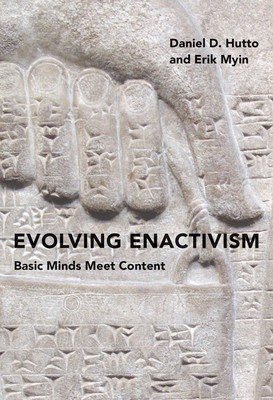
- We will send in 10–14 business days.
- Author: Daniel D Hutto
- Publisher: MIT Press
- ISBN-10: 0262551772
- ISBN-13: 9780262551779
- Format: 13.7 x 20.3 x 2 cm, softcover
- Language: English
- SAVE -10% with code: EXTRA
Reviews
Description
An extended argument that cognitive phenomena--perceiving, imagining, remembering--can be best explained in terms of an interface between contentless and content-involving forms of cognition. Evolving Enactivism argues that cognitive phenomena--perceiving, imagining, remembering--can be best explained in terms of an interface between contentless and content-involving forms of cognition. Building on their earlier book Radicalizing Enactivism, which proposes that there can be forms of cognition without content, Daniel Hutto and Erik Myin demonstrate the unique explanatory advantages of recognizing that only some forms of cognition have content while others--the most elementary ones--do not. They offer an account of the mind in duplex terms, proposing a complex vision of mentality in which these basic contentless forms of cognition interact with content-involving ones. Hutto and Myin argue that the most basic forms of cognition do not, contrary to a currently popular account of cognition, involve picking up and processing information that is then used, reused, stored, and represented in the brain. Rather, basic cognition is contentless--fundamentally interactive, dynamic, and relational. In advancing the case for a radically enactive account of cognition, Hutto and Myin propose crucial adjustments to our concept of cognition and offer theoretical support for their revolutionary rethinking, emphasizing its capacity to explain basic minds in naturalistic terms. They demonstrate the explanatory power of the duplex vision of cognition, showing how it offers powerful means for understanding quintessential cognitive phenomena without introducing scientifically intractable mysteries into the mix.EXTRA 10 % discount with code: EXTRA
The promotion ends in 19d.21:23:12
The discount code is valid when purchasing from 10 €. Discounts do not stack.
- Author: Daniel D Hutto
- Publisher: MIT Press
- ISBN-10: 0262551772
- ISBN-13: 9780262551779
- Format: 13.7 x 20.3 x 2 cm, softcover
- Language: English English


Reviews